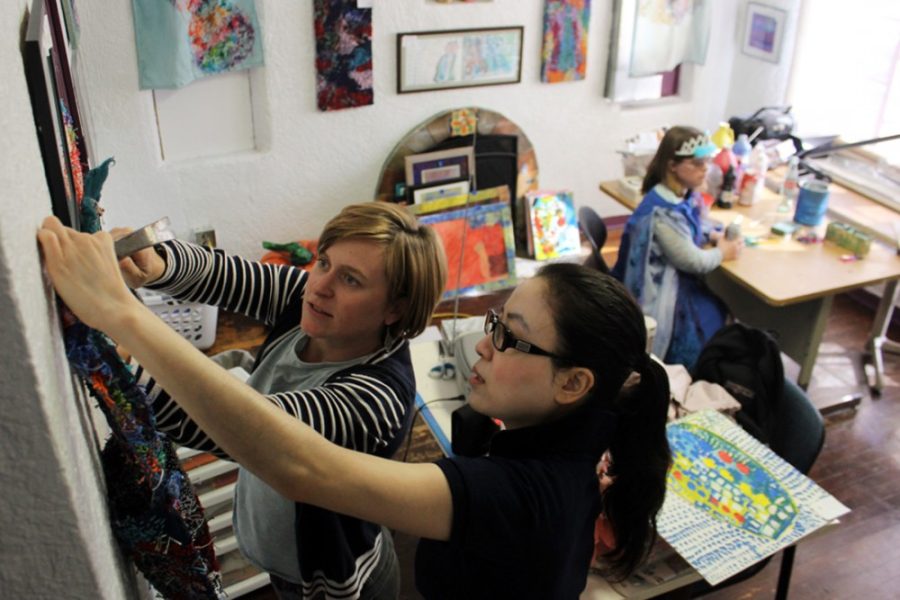From the banners strewn across campus to the music we hear at almost all times of the day, we can see how art is integrated into every facet of our daily human existence.
It is the healing side of art that we don’t see as often. Despite its impact on those it touches, many of us don’t get the chance to see art working its wonders. The ArtWorks’ “Desert Harvest” art show and open house allows one to experience a different side to artistic expression.
ArtWorks is a program for adults with intellectual and developmental disabilities that offers instruction in painting, drawing, creative movement, ceramics, music and fiber art. Through its instruction, ArtWorks’ 20 adult artists are able to express themselves in a respectful and friendly environment while developing life skills such as hygiene, social interaction, health awareness and literacy.
This year, ArtWorks’ show has a desert theme, with pieces touching on the rich local flora and fauna that comprise Tucson’s diverse scenery.
Yumi Shirai, ArtWorks’ program coordinator, described the process the artists use to produce their work.
“We try to capture their uniqueness in a simple way,” Shirai said. “All of the ideas come from the artists themselves.”Facilitating a creative environment for artists with intellectual and developmental disabilities requires planning and attention on behalf of the program’s staff. Different artists are divided among the program’s four studios in order to make the creative environments conducive to each artist’s needs, Shirai said.
The artists, who Shirai requested not be named, each produce their own distinct art styles. One artist, Shirai noted, shows the depth of his personality through his art, which is otherwise not immediately apparent to most people.
“He is a very gentle guy who can’t really talk,” she said, explaining how his limited communication often hinders his ability to connect with others. “The pieces he makes are very expressive and very textured. They can turn out very aggressive looking, but as a person, he is the most gentle soul.”
Another of Shirai’s artists recently made an enormous step in her artistic development.
“It’s very hard for her to go beyond her comfort [zone],” Shirai said. “Her comfort is flower and hearts. With that, she can design whatever.”
Recently, however, with the encouragement of one of the student staff members, a change occurred in her art.
“It’s very hard to encourage her to draw people,” Shirai said. “I think it’s a big breakthrough that she drew a picture of her mom and dad.”
The impact different staff members have on the artists is what makes ArtWorks such a rare experience, she added.
“The connection between the worker and the artist [and] how they can bring out their real strengths is very important,” Shirai said.
ArtWorks was founded in 1989 by Jeanne Carrigan and Mary Paulin. Both had backgrounds in various forms of art therapy, and they came together at the invitation of the university to begin work on an on-campus art therapy program. Carrigan, Shirai’s mentor, can still be found at ArtWorks on some days, this time giving pedicures and manicures to the artists.
“They feel fabulous … [and] are very grateful,” Carrigan said in a June 2011 issue of Family & Community Medicine.
With independence and positive change as the ultimate goals of the program, ArtWorks strives to better the lives of those affected by intellectual and developmental disabilities.
_______________
Follow Ian Martella on Twitter.









